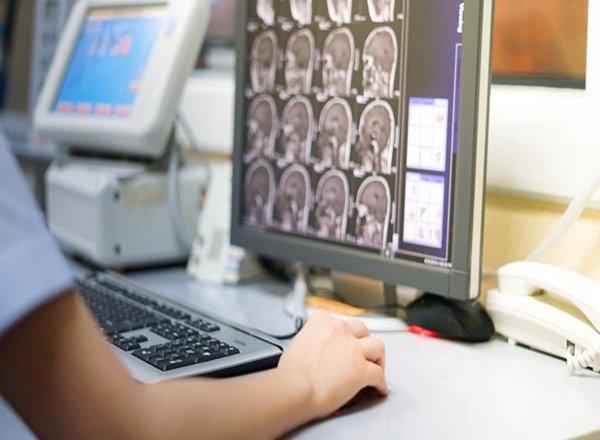Automated brain MRI image labelling could speed up diagnosis for patients
Researchers at King’s College London have automated brain MRI image labelling, meaning more than 100,000 exams can be labelled in less than 30 minutes.
 Published in European Radiology, this study by the School of Biomedical Engineering & Imaging Sciences at King’s College London will allow complex MRI image datasets to be labelled at scale. This breakthrough has the potential to ensure timely diagnosis for patients, leading to improved health outcomes.
Published in European Radiology, this study by the School of Biomedical Engineering & Imaging Sciences at King’s College London will allow complex MRI image datasets to be labelled at scale. This breakthrough has the potential to ensure timely diagnosis for patients, leading to improved health outcomes.
Researchers have automated brain MRI image labelling, needed to teach machine learning image recognition models, by deriving important labels from radiology reports and accurately assigning them to the corresponding MRI examinations. This now means that more than 100,00 MRI examinations can be labelled in less than half an hour, something which would take years to manually perform.
Deep learning typically requires tens of thousands of labelled images to achieve the best possible performance in image recognition tasks. This represents a bottleneck to the development of deep learning systems for complex image datasets, particularly MRI which is fundamental to neurological abnormality detection.
Senior author, Dr Tom Booth, King’s College London School of Biomedical Engineering & Imaging Sciences, said:
By overcoming this bottleneck, we have massively facilitated future deep learning image recognition tasks and this will almost certainly accelerate the arrival into the clinic of automated brain MRI readers. The potential for patient benefit through, ultimately, timely diagnosis, is enormous.
Dr Booth said their validation was uniquely robust. Evaluation was carried out on their model performance on unseen radiology reports and on unseen images:
While this might seem obvious, this has been challenging to do in medical imaging because it requires an enormous team of expert radiologists. Fortunately, our team is a perfect synthesis of clinicians and scientists.
Lead Author, Dr David Wood, King’s College London School of Biomedical Engineering & Imaging Sciences, said:
This study builds on recent breakthroughs in natural language processing…in the spirit of open-access science, we have also made our code and models available to other researchers to ensure that as many people benefit from this work as possible.
While this barrier has now been overcome, further challenges will be, firstly, to perform the deep learning image recognition tasks which also have multiple technical challenges; and secondly, once this is achieved, to ensure the developed models can still perform accurately across different hospitals using different scanners.
Dr Booth said:
This study was possible thanks to a very broad team of experts who are working on these challenges. There is a huge base of supporting organisers and facilitators who are equally important in delivering this research. Obtaining clean data from multiple hospitals across the UK is an important step to overcome the next challenges. We are running a National Institute for Health Research across the UK to prospectively collect brain MRI data for this purpose.
To find out more, visit the King’s College London website.